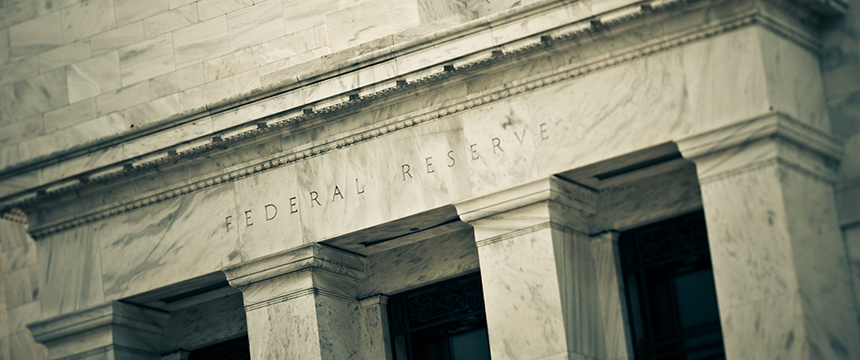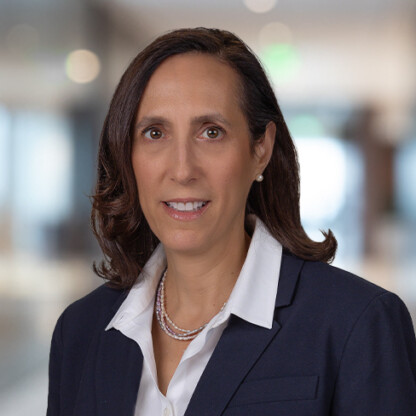
The CARES Act (“Act”) enacted on March 27, 2020 provides the Treasury with $454 billion to make loans, loan guarantees and other investments in Federal Reserve programs and facilities that will give support to eligible businesses, States and municipalities. On April 9, 2020, the Federal Reserve released information on the Main Street Lending Program established pursuant to Section 13(3) of the Federal Reserve Act that will leverage the Treasury’s $75 billion equity investment of CARES Act funds to provide up to $600 billion in new financing to small and medium-sized businesses. The Main Street New Loan Program will provide new loan facilities to eligible borrowers and the Main Street Expanded Loan Program will provide eligible borrowers and eligible lenders with loan facilities in place prior to April 8, 2020 financing to upsize existing loan facilities by adding a tranche of term loan debt. Treasury Secretary Mnuchin announced that this loan program “will make a significant difference for the 40,000 medium size businesses that employ 35 million Americans.”
Under the Main Street New Loan Program and the Main Street Expanded Loan Program (“Main Street Loan Programs”), the Federal Reserve will provide liquidity to eligible lenders that make direct loans to small and medium-sized businesses facing financial strain and liquidity issues. The Federal Reserve will lend to a single purpose vehicle (“SPV”) on a recourse basis. The SPV in turn will purchase 95% participations of eligible loans at par value from eligible lenders (with the eligible lenders retaining 5% of the eligible loans), with a limit of $600 billion in purchased loans. The SPV will share risk on the funds advanced with the eligible lender on a proportionate basis. Loans under the Main Street Loan Programs are reported to be available until September 30, 2020 unless the programs are extended or the funds are expended.
Eligible Lenders
Eligible lenders are U.S. insured depository institutions, U.S. bank holding companies, and U.S. savings and loan holding companies. Eligible Lenders will be required to make certain attestations, including that (i) proceeds of the upsized tranche of the eligible loan will not be used to repay or refinance pre-existing loans or lines of credit made by the eligible lender to the eligible borrower, including the pre-existing portion of the eligible loan, (ii) it will not cancel or reduce any existing lines of credit outstanding to the eligible borrower, and (iii) the entity is eligible to participate in the Main Street Loan Programs, including in light of the conflicts of interest prohibition in section 4019(b) of the CARES Act.
Borrower Eligibility
- Borrower with up to 10,000 employees or up to $2.5 billion in 2019 annual revenues (it is unclear to what extent “affiliation rules” will apply to employee count).
- Borrower created or organized in the United States or under the laws of the United States with significant operations, and a majority of its employees based, in the United States.
- Ability to make Required Borrower Attestations (identified below).
- Borrower permitted to also participate under the Paycheck Protection Program.
- Borrower may only participate in one of the Main Street Loan Programs and would not be eligible to participate in the Federal Reserve’s the Primary Market Corporate Credit Facility.
Main Street New Loan Program
Under this program, the Federal Reserve will purchase participations in loans that originated on or after April 8, 2020.
Eligible Loans
- 4 year maturity.
- Amortization of principal and interest deferred for one year.
- Adjustable rate of Secured Overnight Financing Rate (SOFR) + 2.5% – 4.0% (as of April 8, 2020, the SOFR was 0.01%).
- Minimum loan size of $1 million.
- Maximum loan size that is the lesser of (i) $25 million and (ii) an amount, that when added to the borrower’s existing outstanding and committed but undrawn debt, does not exceed four times the borrower’s 2019 EBITDA.
- Lender will pay to the SPV a facility fee of 1% of the principal amount of the loan participation purchased by the Federal Reserve, but may (and probably will) require borrower to pay the facility fee.
- Borrower will pay an origination fee of 1% of the principal amount of the loans.
- SPV will pay to the lender a servicing fee of 0.25% of the participated portion of the loans.
- No prepayment penalty.
- Loans are unsecured term loans.
Main Street Expanded Loan Program
Under this program, the Federal Reserve will purchase participations in upsized tranches of an existing loan that was originated before April 8, 2020, provided that the upsized tranche is effectuated on or after April 8, 2020.
Eligible Loans
- 4 year maturity.
- Amortization of principal and interest deferred for one year.
- Adjustable rate of SOFR + 2.5% – 4.0%.
- Minimum loan size of $1 million.
- Maximum loan size that is the lesser of (i) $150M, (ii) 30% of the borrower’s existing outstanding and committed but undrawn bank debt or (iii) an amount, that when added to the borrower’s existing outstanding and committed but undrawn debt, does not exceed six times the borrower’s 2019 EBITDA.
- Borrower will pay an origination fee of 1% of the principal amount of the upsized tranche at the time of the upsize.
- SPV will pay to the lender a servicing fee of 0.25% of the participated portion of the loans.
- No prepayment penalty.
- Loans are term loans that may be secured or unsecured. Any collateral, whether such collateral was pledged under the original terms of the eligible loan or at the time of upsizing, will secure the loan participation on a pro rata basis.
Required Borrower Attestations for Main Street Loan Programs Include:
- Borrower will refrain from using the proceeds of the loan (or upsized tranche, as applicable) to repay other loan balances and from repaying other debt of equal or lower priority (other than mandatory principal payments) before repaying the loan in full.
- Borrower will not seek to cancel or reduce any of its outstanding lines of credit.
- Borrower requires financing due to exigent circumstances presented by the coronavirus.
- Borrower will make reasonable efforts to maintain its payroll and retain employees during the term of the loan.
- Borrower meets the EBITDA leverage condition.
- Borrower will follow compensation, stock repurchase and capital distribution restrictions that apply to direct loan programs under section 4003(c)(3)(A)(ii) of the CARES Act (see the first two bullets on the “Restrictions” section below).
- Borrower certifies that it is eligible to participate in the loan program, including the conflicts of interest prohibition in section 4019(b) of the CARES Act.
Restrictions
- Until 12 months after the loan has been repaid, no stock buybacks of equity securities listed on a national securities exchange of Borrower or parent (exceptions for contractual obligations entered in to prior to March 27, 2020) and no dividend payments or capital distributions on common stock of the Borrower.
- During the period from when the loan is executed and one-year after the loan is repaid: (1) officers and employees whose total compensation in 2019 exceeded $425,000 is frozen (on a 12 consecutive months basis) (except for certain compensation determined through an existing collective bargaining agreement entered into prior to March 1, 2020), (2) officers and employees whose pay exceeds $425,000 cannot receive severance pay in excess of twice their total compensation in 2019 and (3) no officer or employee whose total compensation exceeded $3 million in 2019 may receive pay (on a 12 consecutive months basis) in excess of the sum of (i) $3M and (ii) 50% of the excess over $3M of total compensation received in 2019.
- Loans are not eligible for forgiveness.
- Compliance with Section 13(3) of the Federal Reserve Act requirements (not subject to be waived), including the following:
- The Federal Reserve must assign a value to all collateral to ensure loans are sufficiently secured to protect taxpayers from losses.
- Borrowers cannot be insolvent as defined by the Dodd-Frank Act or as the Federal Reserve determines.
Certain Borrower Practical Considerations
- Borrowers will need to determine their eligibility for the Main Street Loan Programs and decide on participation among the two Main Street Loan Programs and the Primary Market Corporate Credit Facility.
- Borrowers will need to review existing financing and contractual commitments
- Borrower should review agreements for limitations on additional borrowing and be prepared to discuss possibility to use upsize tranche, and possible consents, amendments and waivers with their existing lender(s).
- Borrowers should review their assets to identify available collateral that may be required for participation in the Main Street Expanded Loan Facility while keeping in mind any collateral that secures the existing loan facility will also secure the upsized tranche.
Due to the evolving nature of the Main Street Loan Programs and the indication by the Federal Reserve that the Treasury and Federal Reserve may make adjustments to the terms and conditions of the Main Street Loan Programs and will continue to seek input from lenders, borrowers, and other stakeholders, please keep your Foley contact apprised of any steps that you take so we are best positioned to assist once the Treasury and Federal Reserve release further guidance.
Foley has created a multi-disciplinary and multi-jurisdictional team, which has prepared a wealth of topical client resources and is prepared to help our clients meet the legal and business challenges that the coronavirus outbreak is creating for stakeholders across a range of industries. Click here for Foley’s Coronavirus Resource Center to stay apprised of relevant developments, insights and resources to support your business during this challenging time. To receive this content directly in your inbox, click here and submit the form.



